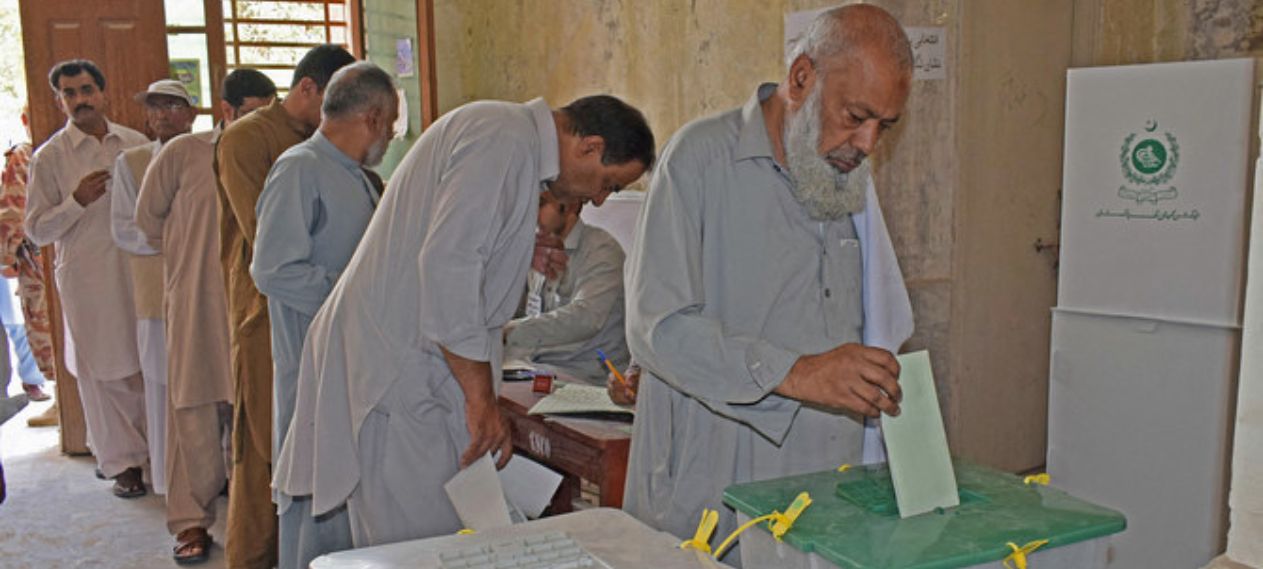Election Commission of Pakistan (ECP) has recently issued a comprehensive code of conduct for the deployment of troops outside polling stations on election day. The code underscores the importance of maintaining neutrality and non-interference in the electoral process, aiming to ensure a fair and transparent voting environment.
Federal Cabinet Approval
The issuance of the code of conduct follows the federal cabinet’s approval for the deployment of troops outside sensitive polling stations. This decision emphasizes the need for enhanced security measures to safeguard the electoral process, particularly at locations deemed more vulnerable or crucial.
According to the code, the security personnel from the armed forces are mandated to perform their duties in accordance with their roles defined in Article 245 of the Constitution. Their primary objective is to assist the ECP in conducting general elections by providing a secure environment for voters to access polling stations easily and safely.
The code outlines a tiered response system, designating the police as the first-tier responders, followed by civil armed forces and the armed forces as second- and third-tier responders, respectively. This strategic arrangement ensures a coordinated and efficient security structure during the electoral process.
Duties of the Armed Forces
The armed forces, as per the code, will be deployed outside selected “most sensitive polling stations” to ensure the security of printing presses during the ballot paper printing process. They are also responsible for safeguarding the transportation of ballot papers from printing presses to the offices of district returning officers and subsequently to polling stations.
Also Read: Will There be Eight Holidays for Elections? Here’s the Truth
Code of Conduct Highlights
The code emphasizes the troops’ obligation to act impartially and neutrally throughout the election process, especially during the voting process. They are instructed to observe politeness while interacting with voters and election staff, maintaining impeccable behavior while remaining firm in their duties.
Ensuring Security
Troops are tasked with facilitating a secure environment for district returning officers, returning officers, presiding officers, and polling staff to accomplish their assigned tasks. They are instructed to identify suspicious voters for frisking by the police personnel and report any irregularities promptly.
Also Read: List of Election Symbol of Political Parties for GE-2024
In case of any irregularity not addressed by the presiding officer, the troops are directed to inform the concerned returning officer. Additionally, the code underscores the troops’ commitment to abide by all relevant laws and continuously work to gain the general public’s trust by ensuring a safe environment and maintaining law and order during the election process.
Rapid Response Force and Transparent Polling
A notification from the federal cabinet designates the troops deployed outside sensitive polling stations from February 5 to 10 as a rapid response force. The deployment of both army personnel and civil armed forces is viewed as pivotal in ensuring a transparent and peaceful polling process.
What is a Polling Station?
A polling station in Pakistan is a designated location where voters go to cast their votes during elections. These stations are set up by the Election Commission of Pakistan (ECP) across the country to facilitate the electoral process. Here’s why polling stations matter and how they work in Pakistan:
Importance of Polling Stations:
- Accessibility: Polling stations are strategically located to ensure accessibility for voters, allowing them to participate in the democratic process without facing unnecessary obstacles.
- Fair Representation: Each polling station serves a specific geographic area, ensuring that voters from that locality can elect their representatives fairly and transparently.
- Security: Polling stations are typically secured by law enforcement agencies to maintain order and ensure a safe environment for voters and polling staff.
- Transparency: The setup of polling stations and the conduct of elections within them are governed by strict rules and regulations to uphold the integrity and transparency of the electoral process.
Also Read: Importance of Electoral Symbols for Political Parties, PTI’s Risks Without Symbol
How Polling Stations Work in Pakistan
- Identification and Registration: Before election day, voters are registered with the ECP and issued voter registration cards. On election day, voters present these cards at their designated polling stations for identification purposes.
- Verification of Identity: Upon arrival at the polling station, voters are required to present their voter registration cards and national identity cards (NICs) to polling staff for verification. The polling staff checks the voter’s name against the electoral roll to ensure eligibility.
- Casting Votes: Once verified, voters are provided with ballot papers corresponding to the elections being held (e.g., general elections, local government elections). They mark their choices in secret and then deposit their ballot papers in the designated ballot boxes.
- Counting of Votes: After the polling hours end, the ballot boxes are sealed, and the counting process begins. Representatives of political parties and independent observers are allowed to monitor the counting process to ensure transparency.
- Declaration of Results: Once the counting is completed, the results from each polling station are compiled and announced. These results contribute to the overall outcome of the elections at the constituency level.
- Post-Election Procedures: After the elections, polling stations are closed, and the electoral materials are securely transported to the relevant authorities for further processing and storage.
Overall, polling stations serve as the cornerstone of the electoral process in Pakistan, providing citizens with a platform to exercise their democratic right to vote and choose their representatives. Their proper functioning is essential for upholding the principles of democracy and ensuring free, fair, and transparent elections.

